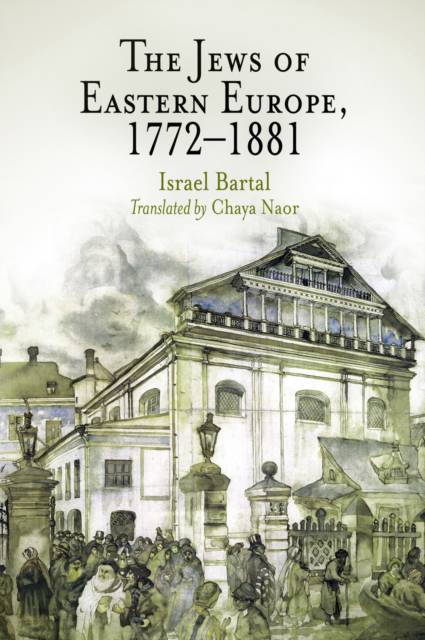
Door een staking bij bpost kan je online bestelling op dit moment iets langer onderweg zijn dan voorzien. Dringend iets nodig? Onze winkels ontvangen jou met open armen!
- Afhalen na 1 uur in een winkel met voorraad
- Gratis thuislevering in België vanaf € 30
- Ruim aanbod met 7 miljoen producten
Door een staking bij bpost kan je online bestelling op dit moment iets langer onderweg zijn dan voorzien. Dringend iets nodig? Onze winkels ontvangen jou met open armen!
- Afhalen na 1 uur in een winkel met voorraad
- Gratis thuislevering in België vanaf € 30
- Ruim aanbod met 7 miljoen producten
Zoeken
Omschrijving
In the nineteenth century, the largest Jewish community the modern world had known lived in hundreds of towns and shtetls in the territory between the Prussian border of Poland and the Ukrainian coast of the Black Sea. The period had started with the partition of Poland and the absorption of its territories into the Russian and Austro-Hungarian empires; it would end with the first large-scale outbreaks of anti-Semitic violence and the imposition in Russia of strong anti-Semitic legislation. In the years between, a traditional society accustomed to an autonomous way of life would be transformed into one much more open to its surrounding cultures, yet much more confident of its own nationalist identity. In The Jews of Eastern Europe, Israel Bartal traces this transformation and finds in it the roots of Jewish modernity.
Specificaties
Betrokkenen
- Auteur(s):
- Uitgeverij:
Inhoud
- Aantal bladzijden:
- 216
- Taal:
- Engels
- Reeks:
Eigenschappen
- Productcode (EAN):
- 9780812219074
- Verschijningsdatum:
- 16/08/2006
- Uitvoering:
- Paperback
- Formaat:
- Trade paperback (VS)
- Afmetingen:
- 152 mm x 226 mm
- Gewicht:
- 317 g

Alleen bij Standaard Boekhandel
+ 103 punten op je klantenkaart van Standaard Boekhandel
Beoordelingen
We publiceren alleen reviews die voldoen aan de voorwaarden voor reviews. Bekijk onze voorwaarden voor reviews.











